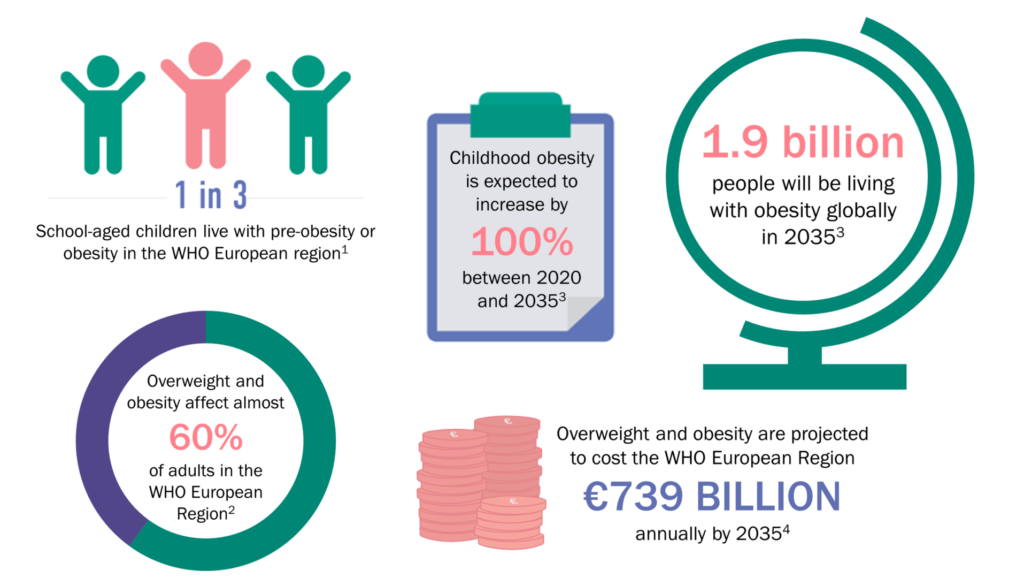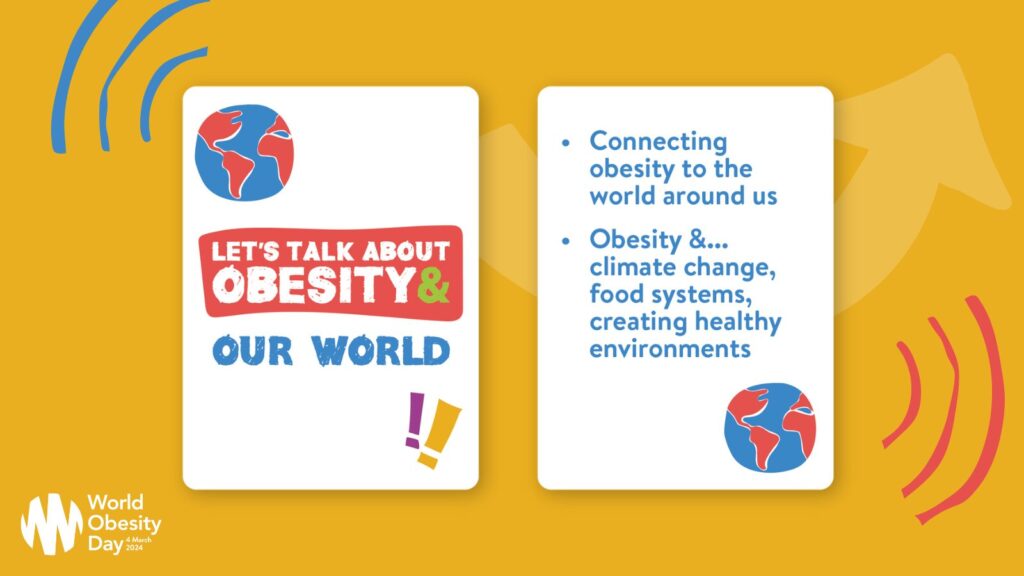World Obesity Day: Let’s talk about obesity and our world
This blog was written by Ola El Saleh for World Obesity Day, 4th March 2024.
If current trends persist, more than half of the global population will be living with overweight and obesity within the next 12 years, underscoring the urgent need for improved prevention, treatment, and support strategies. In addition, the number of people living with obesity globally is expected to reach 1.9 billion, with childhood obesity rates projected to double by 2035. These statistics highlight an urgent public health crisis far beyond the issue of excess weight.

Obesity is a complex disease that significantly influences health from childhood into adulthood. It acts as a precursor to other serious conditions, reshaping health trajectories across generations. This presents challenges for public health: not only is obesity becoming a concern at younger ages, but it also increases the risk of diseases like type 2 diabetes and cardiovascular diseases – conditions once mainly seen in adults – emerging in children. This trend signals a future where younger individuals may face a broader spectrum of noncommunicable diseases much earlier in life. The economic burden is equally significant, with obesity-related issues projected to cost the World Health Organisation (WHO) European Region €739 billion annually by 2035.
Socioeconomic disparities and obesity
The growing concern over health disparities has shed light on how the risk factors for chronic conditions, such as obesity, are deeply embedded in the socioeconomic conditions of our environments. Individuals in deprived communities face higher rates of obesity due to environments that severely limit their access to healthy food, green spaces, and unpolluted environments. This disparity is particularly alarming as some communities report stabilising or even declining obesity rates, while the most deprived sectors continue to experience relentless increases. This widening divide exacerbates the obesity crisis and draws attention to a significant gap in current policies and strategies, which too often overlook the broader determinants of health.
Bridging the gaps
The LongITools project explores the environmental and socioeconomic determinants of health, and how, combined with biological factors, they affect people’s risk of developing non-communicable diseases, such as obesity. Our research takes an ‘exposome’ approach by studying the impact of many exposures simultaneously. This enables the assessment of multiple factors to which an individual is exposed throughout their life and can help in bridging the gaps in research and policy approaches. Current strategies may not fully address the complex interplay of factors contributing to obesity, such as air quality, urban planning, and socioeconomic stressors. By integrating the exposome into our understanding and interventions, we can forge more comprehensive and effective strategies to combat obesity, ensuring equitable health outcomes for all communities.
World Obesity Day
World Obesity Day casts a spotlight on the obesity epidemic, urging us to share knowledge, advocate together, and see obesity from a different perspective. On this day, it is imperative to ‘talk about obesity and our world’ to address the complex web of genetic, environmental, and socioeconomic factors driving the surge in obesity. Recognising that simplistic solutions fall short, there’s a vital need for comprehensive strategies to tackle the roots of the issue.

Addressing obesity effectively requires a concerted effort that goes beyond traditional healthcare settings, involving a broad array of stakeholders. This includes policymakers, researchers, industry leaders, community groups, and individuals – all coming together to foster environments where healthy choices are readily accessible to everyone. By embracing a multidisciplinary approach, we can tackle obesity across various sectors, including health, education, environment, planning and industry, ensuring our strategies are as multifaceted as the problem itself. Working together to create environments where healthy choices are accessible and affordable to all, we pave the way for a healthier future for generations to come.
References
1. World Health Organization Obesity in the WHO European Region Factsheet